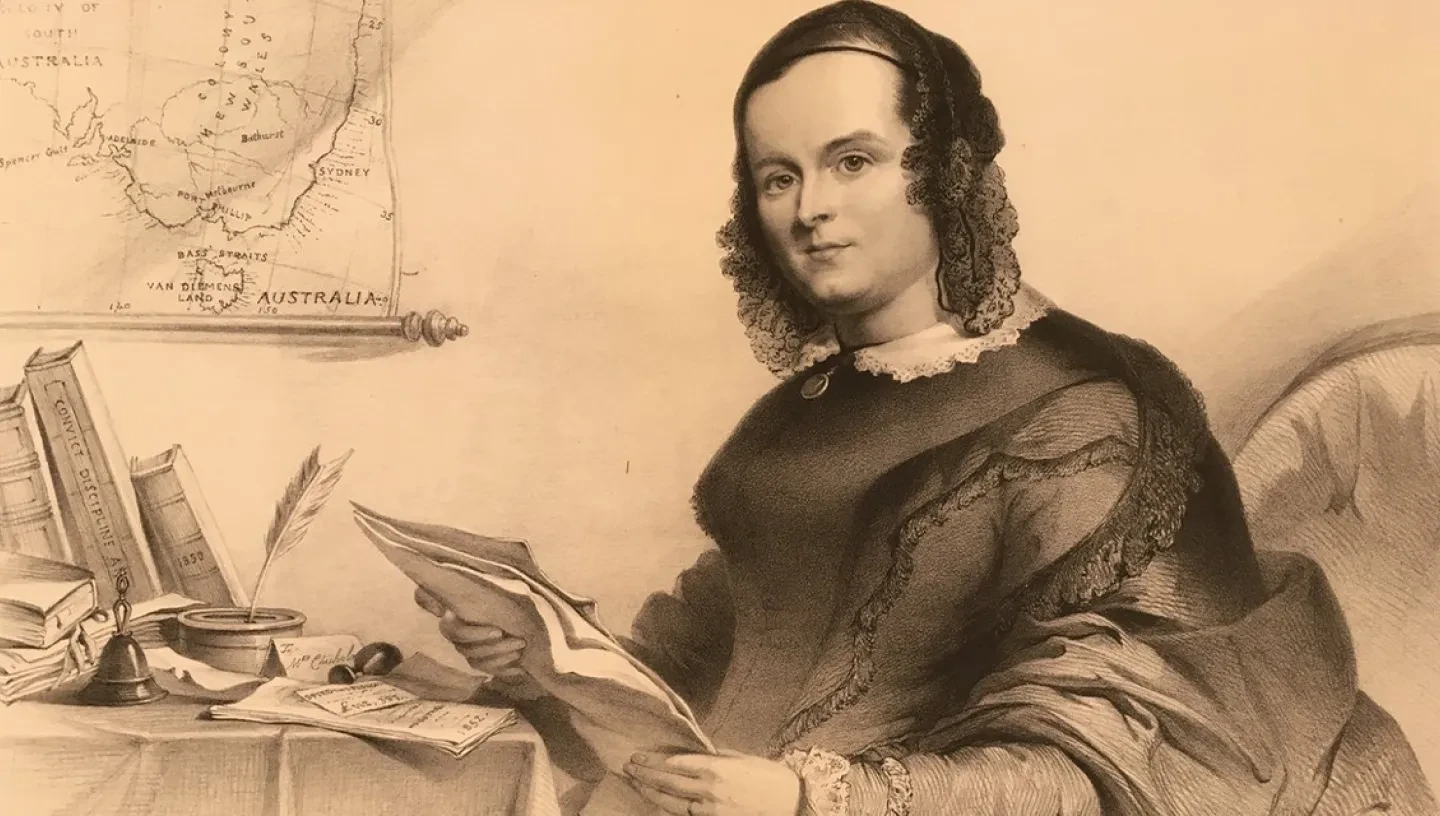
William Schaw Lindsay (or W.S. Lindsay) was British merchant and ship owner. He was a liberal MP for Tynemouth and North Shields, as well as Sunderland.Many of his papers and correspondences were purchased by the National Maritime Museum in 1988. The collection consists of nearly all of the papers Lindsay left to him family.
By Harriet Braine, Archive Assistant
The volume of letters we’ll be examining in this blog post are from ‘men of his time', mostly from statesmen and politicians. They were compiled in 1867.
They include letters from Benjamin Disraeli and David Livingstone. Whilst most of the correspondence comes from men, there are five women tucked away at the end.
All five of the women represented in the letters (LND/4/1) are fascinating people, and, like Lindsay, took a great interest in public affairs and were active in social, political and commercial reform measures in Britain and abroad in the mid-19th century.
Lindsay wrote notes about each correspondent, which introduce each group of letters; some include a photograph of the individual. He also wrote extensively about his impressions upon meeting people in his journals, for example LND/5/3 contains passages about Chisholm, amongst many others.
Frances Vane
The first of the women to appear in the volume is Frances Vane, Marchioness of Londonderry.
After the death of her husband, she managed several coal pits, railways, lime quarries, blast furnaces, a steamer, twelve thousand acres, and oversaw the annual shipment of seven hundred thousand tons of coal, thereby clearing her family of debts and her estate of arrears. She was also the great-grandmother of Winston Churchill.

Lady Franklin
The second is Lady Franklin, known for her philanthropic work and her travels throughout south-eastern Australia. After John Franklin's disappearance in search of the Northwest passage, she sponsored or otherwise supported several expeditions to determine his fate.
Lady Hall of Llanover
The third is Lady Hall of Llanover, patron of the Welsh arts.
She was also an important figure in the temperance movement. Big Ben is said to be named after her husband Benjamin, as he was Commissioner of Works at the time.

Lady Herbert of Lea
The fourth, Lady Herbert of Lea, became an ally of Florence Nightingale when her husband Sidney was made Secretary at War during the Crimean War. She was known as "Lady Lightning" for her efficiency and ardour working for Catholic charities and interests, including patronage of the Family Colonisation Loan Society founded by Caroline Chisholm.

Caroline Chisholm
Notably the only woman represented in Lindsay's "men of his time" without a title, Chisholm was a progressive English humanitarian known mostly for her involvement with female immigrant welfare in Australia.
During the seven years Chisholm was in Australia she placed over 11,000 people in homes and jobs. Chisholm gave evidence before two House of Lords select committees and gained support for some of her initiatives, including free passage to Australia for the wives and children of former convicts, and for the children that through necessity emigrants had left behind in England.
In 1849, with the support of Lord Shaftesbury, Sir Sidney Herbert and Wyndham Harding FRS, Chisholm founded the Family Colonisation Loan Society from her home in Charlton Crescent in Islington.
The Society's aim was to lend half the cost of the fare (the emigrant finding the other half), which was to be refunded after two years in Australia.
Chisholm held regular meetings at Charlton Crescent giving practical advice to emigrants. The Society initially found accommodation on board emigrant ships, and then chartered its own ships to transport the emigrants. It was Chisholm's insistence that the Society's ships have better accommodation that led to the upgrading of the Passenger Acts.
Her husband Archibald Chisholm returned to Australia in 1851 to act as Honorary Colonial Agent to help newly arrived emigrants and to collect repayment of loans. By 1854 the Society had assisted more than 3,000 people to travel to Australia.
Lindsay was an expert on shipping issues and entered national politics through his interest in the repeal of the Navigation Acts. The following quotes from Lindsay’s journal (LND/5/3) suggest he was impressed by Chisholm in spite of her gender:
“She told me of India and Australia; of the mode of conducting business there; and of the fearful amount of wickedness she had encountered in her travels. Altogether her mind seemed so much above the ordinary stamp of a woman… Her conversational powers were very great”.
On the upgrading of the Passenger Act, which saw the improvement of berthing arrangements for couples, single men and single women. Before the Act they had all had to sleep in one room (which obviously led to much scandalous behaviour):
“She assailed the government boldly, both in person and through the press. Some might say that she exhibited too much boldness, being a woman. In reply to all such criticisms upon her conduct as she said herself it is because I am a woman, a wife and a mother that I assume such a tone. Such a state of things must not continue”.
Transcriptions of these papers are available in the Caird Library – contact us for more information.
Discover the collection items mentioned in this blog post
'Advance Australia' Caroline Chisholm (PAG6614)
Bound volume of letters to Lindsay (LND/4/1)
W.S. Lindsay Journal 1854-56 (LND/5/3)